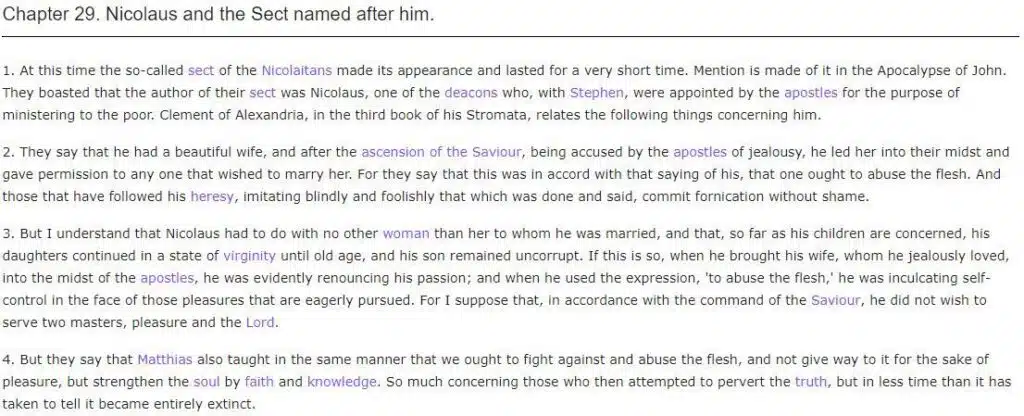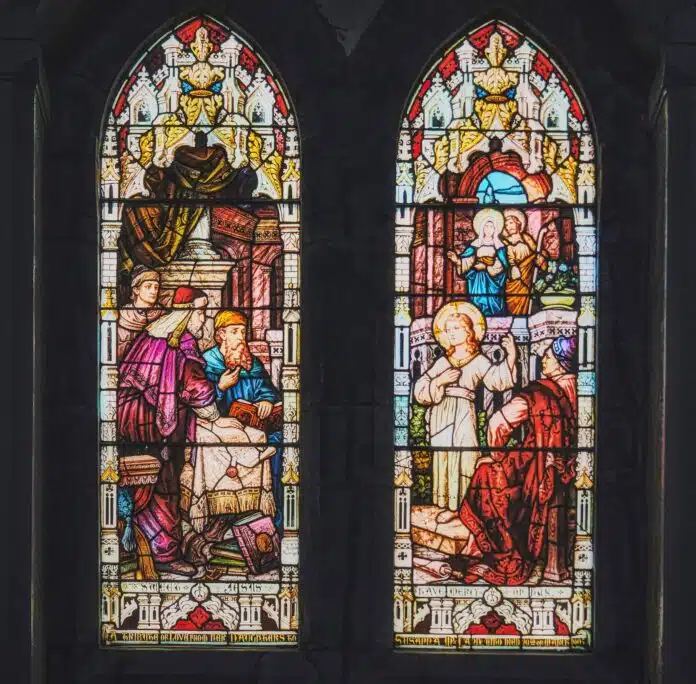The 3rd church in this study is the Church of Pergamos – the compromising church. Pergamos is an interesting church; although they follow Jesus and hold fast to his name, they also allow others to commit a myriad of sins in their midst without rebuke.
Satan’s Seat
The Church of Pergamos like the Church of Smyrna. They seem to have faced or are also facing their fair share of persecution which again Jesus sympathizes with. They hold fast to Jesus’ name and they don’t deny him even to their death which Jesus in speaking to the Church of Smyrna, rewards them for with the crown of life (Revelation 2:13). However, Jesus continually references “Satan’s seat” or where Satan dwells when addressing Pergamos. This first strikes me as strange when I first encountered the wording.
However, once we read on we catch a glimpse as to why Jesus may be choosing this wording; the Church of Pergamos has those that participate in idolatry as well as sexual immorality, “But I have a few things against you, because you have there those who hold the doctrine of Balaam, who taught Balak to put a stumbling block before the children of Israel, to eat things sacrificed to idols, and to commit sexual immorality. Thus you also have those who hold the doctrine of the Nicolaitans, which thing I hate,” (Revelation 2:14-15).
Notice that Jesus didn’t say that the Church of Pergamos has a whole is participating in these things. The word choice here is very intricate and specific. Jesus in verse 13 says he even knows where “Satan’s seat” is.
Later in this verse he commends them for their good faith and talks about Antipas a “faithful martyr, who was killed among you, where Satan dwells” (Revelation 2:13). Christ is using specific language to point out to the Church of Pergamos that they need to be weary of who is among them, because it’s those people that are worshiping other idols and committing fornication and other sexual sins and maybe even more specifically, eating food offered to idols and partaking in ritualistic sexual intercourse.
He says that it’s these people that are among them that “hold the doctrine of Balaam” (Revelation 2:13). Jesus’ references to Balaam and Balak may be confusing at first if you’re not too familiar with the Old Testament (specifically the book of Numbers) but we’ll take a look at that a little later.
So the problem that Jesus has here with Pergamos isn’t necessarily what they are doing it’s what they could eventually be doing or being exposed to that he’s concerned about. It happened with Israel and it could very well happen with the Church of Pergamos. Jesus also later states that these people also hold the doctrine of Nicolaitanes.
If you remember, the Church of Ephesus also hates them and this was something Jesus commends them for; for hating what he hates (Revelation 2:6). This raises several questions that may help fully grasp these characters Jesus alludes to and why following in their footsteps isn’t recommended: who is Balaam and what is his doctrine? Who is Balak that he taught this doctrine too? And who are the Nicolaitanes and what do they believe?
Balaam and Balak
Balaam was one of God’s prophets – although wicked in nature. Balak, the king of Moab sought his counsel to help him curse the Israelites that appeared in Moab (Numbers 22:6-7). He was threatened by them due to their large numbers stating “behold, they cover the face of the earth…” (Numbers 22:5) and was worried that due to those numbers they would quickly consume the lands resources (Numbers 22:1-4).
However, Balaam seeks Gods advise on the matter and is warned to not curse the Israelites because they are blessed (Numbers 22:10-12). This game of Balak asking Balaam to curse the Israelites and Balaam blessing the Israelites due to God’s stern warning happens three times until Balak, out of anger, tells him to return to where he came from (Numbers 23-24). But this isn’t where the story ends. Immediately in Numbers 25:1 we see that the Israelites are sinning against God,
“Now Israel remained in Acacia Grove, and the people began to commit harlotry with the women of Moab. They invited the people to the sacrifices of their gods, and the people ate and bowed down to their gods. So Israel was joined to Baal of Peor, and the anger of the Lord was aroused against Israel.” (Numbers 25:1-3)
God punishes this act of deviance by sending a plague that kills 24,000 Israelites until those that joined in these sins were killed (Numbers 25:4-9). There seems to be a skip in time and events however between the end of chapter 24 when Balaam returns to his land and the beginning of chapter 25 where the Israelites begin to commit idolatry and sexual immorality. The answer to this “sudden” deviance is given later in chapter 31 by Moses when several officers after a war with Midian, spared their women,
“But Moses was angry with the officers of the army, with the captains over thousands and captains over hundreds, who had come from the battle. And Moses said to them: ‘Have you kept all the women alive? Look, these women caused the children of Israel, through the counsel of Balaam, to trespass against the Lord in the incident of Peor, and there was a plague among the congregation of the Lord.'” (Numbers 31:14-16)
What caused Israel to slip up was Balaam who some time after the events of chapter 24 went back to Balak and offered him advice on how to have Israel essentially curse themselves since God wouldn’t allow him to do so directly.
The Nicolaitanes
The Nicolaitanes were a sect of the early church that distorted the gospel and ate things sacrificed to idols as was the case with the Israelites through the fault of Balaam. It’s not clear on who founded this sect but some credit the founder to be Nicolas from Antioch who was chosen with six others among a multitude of disciples (Acts 6:1-6).
These men were chosen specifically because they were told to be of good character, “Therefore, brethren, seek out from among you seven men of good reputation, full of the Holy Spirit and wisdom, whom we may appoint over this business,” (Acts 6:3). Being part of this group, how could Nicolas be accused of starting a fringe cult? Historic texts may shed some light to this or at least offer an explanation to why this may have happened.
Saint Irenaeus, a bishop of Lyon, France and Christian theologian of the 2nd century, blamed Nicolas for the actions of the sect. In his book, Against Heresies (Book I, Chapter 26, section 3) he states,
“The Nicolaitanes are the followers of that Nicolas who was one of the seven first ordained to the diaconate by the apostles. They lead lives of unrestrained indulgence. The character of these men is very plainly pointed out in the Apocalypse of John, [when they are represented] as teaching that it is a matter of indifference to practise adultery, and to eat things sacrificed to idols. Wherefore the Word has also spoken of them thus: But this you have, that you hate the deeds of the Nicolaitanes, which I also hate.” (Revelation 2:6)
However, Eusebius of Caesarea, a historian of the 3rd century wrote about the Nicolaitanes as well in his acclaimed book Ecclesiastical History also known as Church History (Book III, chapter 29) but didn’t attribute the sects beliefs and behaviors to Nicolas and even spoke a little about his life and how he was a well doing man,

Both of these historical accounts of Nicolas are interesting but should be taken with a grain of salt in light of the Biblical narrative. We cant know for certain what type of life Nicolas led outside of what is told to us in Acts or who exactly founded this sect of Christianity.
To bring it all back together, we see that Jesus references the story of Balaam and Balak and reminds the Church of Pergamos what they should be avoiding. At the end, again Jesus tells them to repent of their ways but this is the interesting part, he tells them to repent or else what? Or else they will get something taken away from them like the Church of Ephesus? He says, “Repent, or else I will come to you quickly and will fight against them with the sword of My mouth,” (Revelation 2:16).
He warns them that he’s coming quickly a language we’re familiar with now but he includes that he will fight them with the sword of his mouth. It’s not too strange to think that as an “or else” statement Jesus is backing them up and is warning the wrong doers instead. This part of his message seems to be speaking more to those that are participating in Balaam’s doctrine. Finally, to those that overcome will be given the “hidden manna” to eat as well as a white stone with a new name only the bearer knows (Revelation 2:17).
If you enjoyed this study, you can find similar studies on the book of Revelation here including the 24 Elders, the 4 living creatures, 4 Horseman, etc.




 Support the Ministry
Support the Ministry
His message to the church of Pergamos is super humbling. You could be willing to hold fast to His name, even unto death, but still be compromising your faith daily by neglecting His commands and pursuing sin. What a sad state of delusion that is.